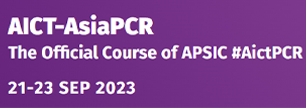


- NEWS
-
-
Scientific LibraryAcute Coronary Syndrom ASCVD Prevention Bifurcation Stenting Cardio-Oncology Congestive Heart Failure DAPT Duration Drug Coated Balloon Fractional Flow ReserveCases VideosE-LearningIndustry Insights
- LIVE REVIEW
-
Clinical Trial
2018 Mar;11(3):e004408.
JOURNAL:Circ Heart Fail.
 Article Link
Article Link

Longitudinal Assessment of Vascular Function With Sunitinib in Patients With Metastatic Renal Cell Carcinoma
Catino AB, Hubbard RA, Ky B et al.
KEYWORDS
VEGF TKI; blood pressure; carcinoma, renal cell; cardio-oncology; cardiotoxicity; hypertension; ventricular dysfunction
BACKGROUND - Sunitinib, used widely in metastatic renal cell carcinoma, can result in hypertension, left ventricular dysfunction, and heart failure. However, the relationships between vascular function and cardiac dysfunction with sunitinib are poorly understood.
METHODS AND RESULTS - In a multicenter prospective study of 84 metastatic renal cell carcinoma patients, echocardiography, arterial tonometry, and BNP (B-type natriuretic peptide) measures were performed at baseline and at 3.5, 15, and 33 weeks after sunitinib initiation, correlating with sunitinib cycles 1, 3, and 6. Mean change in vascular function parameters and 95% confidence intervals were calculated. Linear regression models were used to estimate associations between vascular function and left ventricular ejection fraction, longitudinal strain, diastolic function (E/e'), and BNP. After 3.5 weeks of sunitinib, mean systolic blood pressure increased by 9.5 mm Hg (95% confidence interval, 2.0-17.1; P=0.02) and diastolic blood pressure by 7.2 mm Hg (95% confidence interval, 4.3-10.0; P<0.001) across all participants. Sunitinib resulted in increases in large artery stiffness (carotid-femoral pulse wave velocity) and resistive load (total peripheral resistance and arterial elastance; all P<0.05) and changes in pulsatile load (total arterial compliance and wave reflection). There were no statistically significant associations between vascular function and systolic dysfunction (left ventricular ejection fraction and longitudinal strain). However, baseline total peripheral resistance, arterial elastance, and aortic impedance were associated with worsening diastolic function and filling pressures over time.
CONCLUSIONS - In patients with metastatic renal cell carcinoma, sunitinib resulted in early, significant increases in blood pressure, arterial stiffness, and resistive and pulsatile load within 3.5 weeks of treatment. Baseline vascular function parameters were associated with worsening diastolic but not systolic function.
© 2018 American Heart Association, Inc.




















